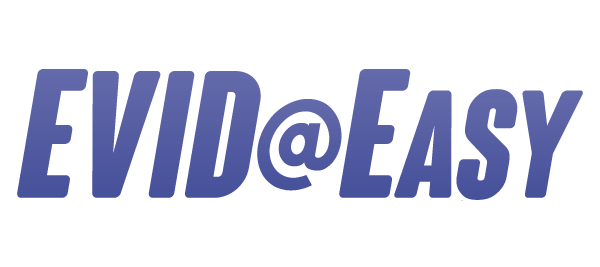
Latin American and Caribbean Health Sciences Literature
Bibliographic database of scientific and technical literature in Health Sciences with over a million documents, including articles from more than 900 indexed journals, theses and dissertations, books and book chapters, papers presented in symposiums or conferences, government documents, and publications from international organizations across approximately 40 countries in Latin America and the Caribbean. The link to the full text is available for most of the documents. LILACS is a product of the Latin American and Caribbean System on Health Sciences Information, coordinated by BIREME, with the collaboration of more than 800 Cooperating Centers.

Health Sciences Descriptors/Medical Subject Headings
A structured and multilingual thesaurus – Portuguese, Spanish, English, and French – representing terminology in health sciences and providing a unique language for indexing and retrieving documents in VHL. DeCS includes the translation of MeSH terms from the U.S. National Library of Medicine (NLM) into Portuguese, Spanish, and French, as well as exclusive categories for the areas of Science and Health, Homeopathy, Traditional, Complementary, and Integrative Medicines, Public Health, and Sanitary Surveillance.
Also, explore DeCS Finder – a service that facilitates the location of DeCS/MeSH descriptors.
Derived resources from other information sources presenting selected, systematized, and characterized content to support the user in different stages of the decision-making process. These are knowledge translation resources that contribute to evidence-informed health decisions.

Guided Evidence Search
It is a guided evidence search tool in VHL on topics reflecting the health priorities of the Sustainable Development Goals (SDG3). EVID@Easy guides the user through questions (or trails) for different moments of the decision-making process:
1) Understanding the health problem
2) Identifying and selecting options to deal with the problem
3) Analysis of aspects and considerations to implement the options
4) Monitoring and evaluation of the impact of the implementation (of the decision)
Each trail culminates with a search result in VHL.
Evidence Maps
It is a method of systematizing and graphically representing the evidence analyzed in review studies, associating the effect of interventions for health outcomes, graphically highlighting gaps where there is little or no evidence and where evidence is concentrated.
Windows of Knowledge
It is a product that seeks to highlight and draw attention to selected documents and informational resources from the VHL collection on a relevant health topic. It has the same function as a showcase itself and operates as a microsite. The Windows of Knowledge are built based on a methodology that organizes content into two main areas: a central area with up to 8 content components (affectionately called a spider) and areas for other content.
GRADE Portal of Guides and Recommendations
Brings together resources to support clinical and public health decisions that meet the GRADE standard (The Grading of Recommendations Assessment, Development, and Evaluation) and were developed mostly from guidelines and recommendations from PAHO/WHO, other national and international institutions, as well as associations and scientific societies. The resources are related and integrated on the Portal.
BIGG – Database of Internacional GRADE Guidelines – a database of clinical and public health guidelines assessed and qualified according to the GRADE standard.
BIGG-REC – Repository with over 3,000 individual recommendations for SDG3 (Health and Well-being) goals originating from clinical and public health guidelines from PAHO and WHO. The recommendations come from about 300 GRADE guidelines from WHO and PAHO. Each recommendation is related to at least one of the SDG-3 goals and aggregates information regarding the strength of the recommendation. BIGG-REC uses the PICO (population, interventions, comparators, and outcomes) model to map and catalog recommendations, enabling contextualized decision-making at the local, provincial, regional, and jurisdictional levels.
BIGG-Map – Interactive map that provides an overview and graphical representation of recommendations and evidence summaries from PAHO and WHO for managing COVID-19, following the GRADE approach. The map summarizes recommendations from BIGG-REC and systematic review abstracts on pharmacological interventions for COVID-19 in a matrix of populations and interventions.
PIE – Evidence-Informed Policies
A collection of documents that contributes to policy decision-making processes based on the best available scientific evidence, including processes for knowledge translation and exchanging knowledge among managers, researchers and representatives of civil society in the management of health services and systems.
BRISA – Regional Base of Health Technology Assessment Reports for the Americas
Offers free access to bibliographic information on health technology assessments prepared and published by member institutions of the Health Technology Assessment Network for the Americas (RedETSA).
SOF – Formative Second Opinion
Formative Second Opinion (SOF) is an information product developed and operated collaboratively by BIREME in partnership with the Ministry of Health of Brazil and a broad network of collaborators in Telehealth since 2007. Integrated into the National Telehealth Networks Program and the Primary Health Care Virtual Health Library (BVS APS), SOF currently has approximately 1,700 questions and answers with short, contextualized texts, informed by evidence, originating from clinical questions addressed through teleconsultations offered by Telehealth Centers.
The SOF collection is available on the VHL APS and integrated into the collection of the Regional VHL Portal.
e-BlueInfo
e-BlueInfo is a totally free app for healthcare professionals, providing reliable and up-to-date information selected by experts from the Ministries of Health and from educational and research institutions in Brazil, Colombia, El Salvador, Guatemala, Paraguay, Peru, and PAHO/WHO. Developed by BIREME in collaboration with a network of institutions coordinated by the Ministries of Health and the Representations of the Pan American Health Organization / World Health Organization in the countries.
The collection of bibliographic databases of VHL consists of LILACS, national, thematic, and institutional databases, repositories of PAHO and WHO, and the Medline database and other regional databases. The entire collection is available in the integrated search service of the VHL Regional Portal.
Information resources that bring together other types of non-bibliographic content.
Repository of Search Strategies on the VHL
A collection of search expressions in VHL developed and applied for the development of thematic areas, evidence maps, knowledge showcases, topics (trails) included in the EVID@Easy tool, reviews, and other types of evidence syntheses and publications. It includes the description and details of bibliographic search expressions for BVS, occasionally adapted for other information sources such as PUBMED, EMBASE, etc., allowing sharing and reuse of these searches. The repository is updated by the VHL Reference Network (RefNet).
DirEve – Events Directory
Information about scientific events in the health field, such as congresses, seminars, conferences, etc., primarily taking place in Latin America and the Caribbean. DirEve is updated by more than 70 institutions that are members of the VHL Network and coordinated by BIREME.
VHL Network Directory
Detailed information about the institutions that make up the Virtual Health Library (VHL) Network. This directory includes data such as the name, location, contacts, and roles (categories) of each participating institution, facilitating collaboration and access to health information resources.
LIS – Health Information Locator
Catalog of portals, social networks, image banks, and other internet resources in the health area selected according to quality and relevance criteria for health systems and services. LIS is updated by over 80 institutions that are members of the VHL Network.
Portal of Journals on Health Sciences
Portal on scientific and technical journals in the health area, in addition to the available collections with information based on the portal’s ISSN – International Standard Serials Number registration, for standardization purposes and with links to the portals of journals and full-text articles in the databases available in VHL and in the cooperating libraries of the SeCS Collective Catalog – Serials in Health Sciences (updated until 2019). It brings together more than 20 thousand records of national and international journals indexed in VHL.
Also, explore the Scholarly Communication in Health Sciences
Multimedia Resources Catalog
It is a referential information source of regional scope (Latin America and the Caribbean) for the registration and indexing of videos, audios, static or moving images, and presentations. Multimedia resources included in the catalog are generally produced by institutions of the VHL Network, PAHO or BIREME. The catalog are published on the internet and are freely accessible.
Health Legislation in the Americas
Database with Public Health legislation that has been reflected in the legal and regulatory frameworks of the countries of the Americas through an organized, systematized, and updated legal information system available in full text and/or extracts from their original sources. The coordination of the database is carried out by the Legal Advisory of the Director Council of PAHO/WHO, in a strategic alliance with BIREME and with content selected by collaborating centers and multidisciplinary researchers, Ministries of Health, Congresses, and National Assemblies of the Member States of PAHO/WHO.
Open Educational Resources Repository
Open Educational Resources Repository is available on the Virtual Campus of Public Health (CVSP) and on other distance learning platforms linked to the institutions of the LILACS and VHL Networks, in Latin America and the Caribbean.
Services for the user aim to facilitate, guide, and organize the process of search and information retrieval in the VHL Regional Portal.
My VHL
Service that stores user information and preferences. It is available for any user through their Facebook, Google, BIREME Account, or My VHL service itself. My VHL offers personalized services and facilities such as:
– Creating collections of documents from search results processed in VHL databases or documents found in VHL databases based on keywords indicated for Topics of Interest.
– Retrieve user-authored publications retrieved from various sources considering the ORCID number provided in the User Profile.
– Search history carried out in VHL whenever the user is logged into the service; and
– List of favorite links indicated by the user allowing quick and direct access to sites of interest.
Ask a Librarian
Help service to the VHL user available via contact form. Any user can send their questions, comments, suggestions, report an error or be guided in the elaboration of a search on the BVS. The service is provided by the VHL team.
DeCS Finder
An online service that allows locating DeCS/MeSH thesaurus terms in natural language texts provided by the user in an automatic way, facilitating the task of defining keywords that can describe their content or index documents. The DeCS Finder is a lexical tool that goes through each word of the text to be analyzed, searching for thesaurus terms, and analyzes if it belongs to the types of terms selected by the user, adding it to the list of suggested terms.
Tutorials, Guides, and Videos on “How to Search” in VHL
Teaching material that facilitate the process of information search in the VHL. If you still have doubts or need to validate a search strategy, contact us through the ‘Ask a Librarian‘ service.
A series of free learning distance courses aimed at reaching more people in different locations are available for researchers and health information producers.
Access and Use of Scientific Information in Health
The Access and Use of Scientific Information in Health course is an initiative of BIREME and aims to develop skills and competencies, promoting user autonomy in health information research efficiently within the health field.
Scientific Communication in Health Sciences: introductory course
This course is aimed at professionals and technicians in the healthcare field, researchers, scientific editors, undergraduate and graduate students in the healthcare field, and others interested in the key concepts governing scientific communication. Specifically, the course aims to:
-Introduce the fundamental concepts of scientific communication in health sciences.
-Increase awareness of the need to report research findings and clinical observations.
-Present the principles and standards governing the proper writing of reports and scientific articles.
Scientific Communication in Health Sciences: advanced course
This course aims to continue the Introductory Course in Scientific Communication in Health Sciences. The Advanced Course covers topics that occur after the submission of an article for publication, such as scientific impact metrics, reproducibility of science, peer review, and Open Science in all its aspects.
Evidence Map: methodology and application
Evidence Map is a methodology for systematizing and graphically representing the evidence analyzed in review studies of an area regarding the effect of interventions on health outcomes. This online course is based on the “Evidence Gap Map” methodology adapted by BIREME.
Evidence-Informed Policies (EIP)
A self-learning course for decision-makers and managers at different levels who formulate and implement health policies and programs and their supporters from national and local governments; researchers, graduate students, and members of organized civil society interested in the topic. The content and working methods are adapted from the SUPPORT Tools (SUPporting POlicy relevant Reviews and Trials) for Evidence-Informed Policies, which have been adopted by EVIPNet Americas, as well as other recent resources.


